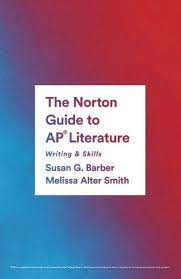1 – Overload – The work of teaching will never end, so you must choose when and where to end it. There’s simply not time to do everything required of the job; make peace with the fact that some things can go undone.
2 – Assume the Best – Enter each conversation, class, and day believing the best about students instead of the worst. This mindset and energy will spill over to your classroom culture.
3 – Abundance Mentality – Teaching out of a scarcity mentality is exhausting, but shifting to an abundance mentality, viewing colleagues as our most underused resource, can be both surprising and rewarding.
4 – Learning – Too often the focus of school is grades; the more teachers can do to shift the mindset and conversation from grades to learning will make work for both students and teachers much more meaningful.
5 Developing Professionally – Here’s what makes teachers grow more significantly than anything else: It is taking on a challenging unit or course with a little accountability, a few beginning resources, and consistent encouragement.
6. Presence – Ask yourself these three questions the next time that you are having a great classroom moment: Was I fully present? On a deeper level, what was this experience actually about? How can it be replicated?
7. Truth Telling – Adolescents can struggle to see past the here and now. They need a vision of who they can be and how they can get there. These conversations can be difficult but we overestimate the discomfort and underestimate the rewards. They can change lives. Master the ability to come from a place of love and care.
8. Atmosphere – The most crucial information about a classroom is not the curriculum or the assignment, it is how it feels to be there. Start planning by what you want your students to feel. Then think about how the curriculum can help achieve it.
9. Colleagues – Make friendship and art form with a handful of colleagues and you will never feel alone.
10. Make the Magic – The best lessons, just like the best cooking, come from a place of nurturing. Good meals fill the belly and warm the heart. The best lessons spark the mind and awaken the soul.
11. Who You Are – You can be different for each class or you can be the same person all day long. Resist trying to be the teacher down the hall or the one on social media and lean into you. Authenticity matters most.
12. Priorities – No matter how busy your schedule, how far behind you are in grading, or how many copies you need to make, if you are not taking time to build relationships with students, you are doing it wrong.
13. Rigor – Rigor isn’t assigning more work. It is figuring out how to make the work assigned more meaningful.
14. Beginnings and Endings – The eight minutes that matter most are the first four and last four of a lesson. Get everyone engaged, then offer a mini-sermon at the end about the lesson’s importance.
15. Experience – There are no hacks. There are no shortcuts. You have to show up and do the work. Day after day, year after year.
16. Responsibility – Teaching may be the only profession where your responsibilities on the first day of the job are the same on your last day. It doesn’t get easier, it just gets different.
17. Sorrow – You will attend student funerals and you will never be ok with it.
18. Chaos – Quiet and compliant classrooms are overrated. Learn to embrace the messy, the loud, and the controlled chaos that often occurs with discovery and learning.
19. Learning Community – Think of yourself as the lead learner instead of the person in the room who has all of the answers. Model questioning, curiosity, and personal growth.
20. Closing the Door – There are so many things in education that teachers have no control over, but when you close the door to your classroom, you have control (even when implementing programs you may not agree with). Who you are after you close the door is how your students will remember you.
21. Guilt – Make no apologies for not grading or planning at night or over the weekend. Enjoy time off without feeling like you should be working.
22. Non-sexy Work – Some lessons are creative, fun, and energizing, but reading, writing, working problems, and memorizing facts are necessary and have value. Don’t feel any less of a teacher when the classroom calls for these kind of days.
23. Planning – Always keep the big picture of where you’re going in mind but remain open to the organic and unplanned moments of inspiration and/or learning that occurs as the result of engaged learners.
24. The Whole Child – Your class is one small piece of your students’ lives. The ability to see and invest in students beyond content area is a gift.
25. Leadership – Being a leader in a school is more about listening, serving, and encouraging than being in charge.
We see you and are with you! Have a great 2025 in the classroom.
Brian and Susan












